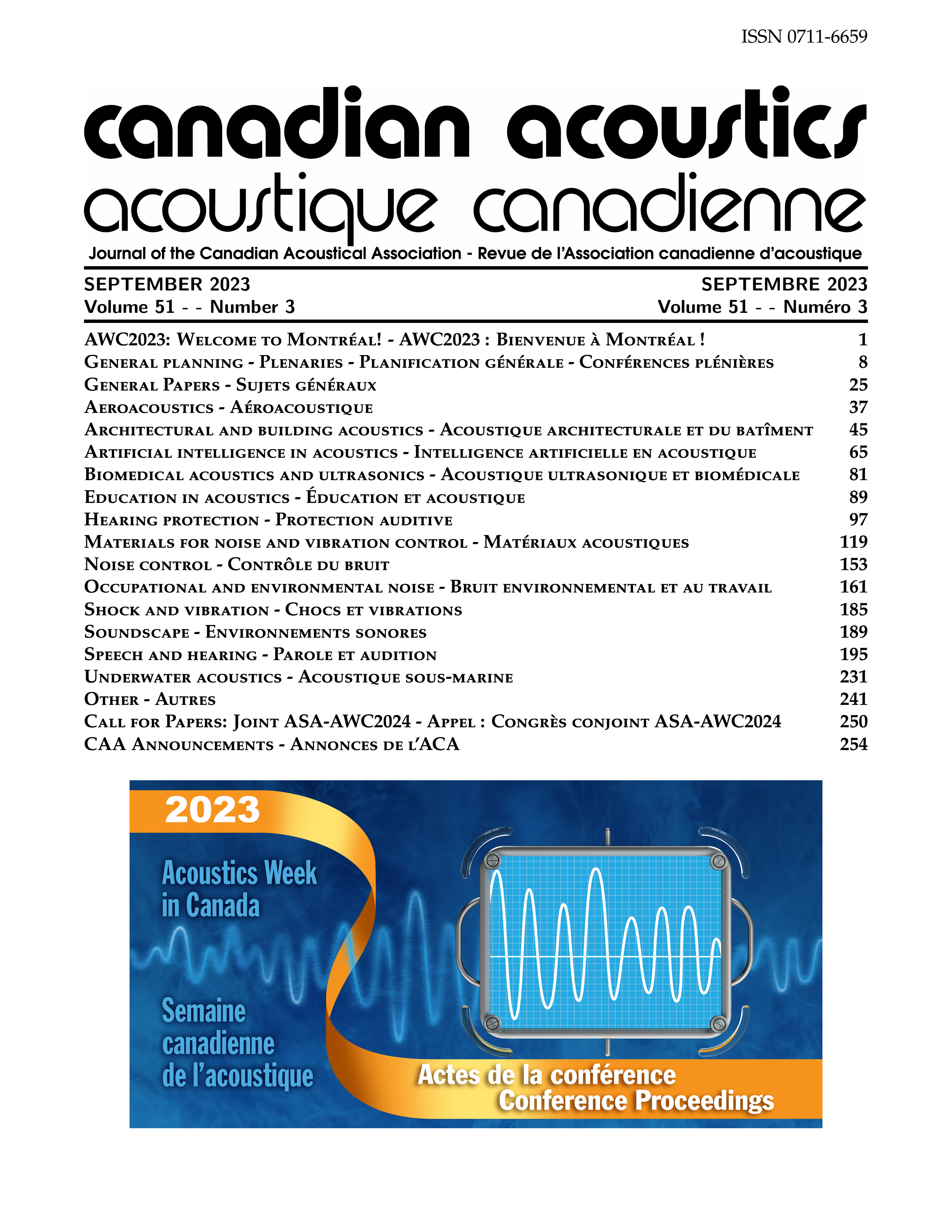Use of Logistic Regression Models as a Supervised Learning Algorithm to Identify Impulsive Sounds in Monitored Sound Data
Abstract
Impulsive sounds, characterized by their transient nature, often pose challenges in sound monitoring applications such as environmental noise assessments, where impulsive sounds need to be identified and processed separately from other impulsive and non-impulsive sounds. Several methods exist to identify impulsive sounds, such as through listening to recorded audio or a manual examination of the logged frequency-spectral data. This paper presents of the use of logistic regression models, implemented as a supervised learning algorithm, to identify impulsive sounds from monitored sound data. Logged spectral sound pressure data from sound level meters with were used as input. A segment of the data was pre-labelled for the impulsive sounds of interest and was used to train a logistic regression model to identify the same impulsive sounds in other data. This method aims to automate some of the analysis procedure required for handling large volumes of spectral data involving impulsive sounds.Additional Files
Published
How to Cite
Issue
Section
License
Author Licensing Addendum
This Licensing Addendum ("Addendum") is entered into between the undersigned Author(s) and Canadian Acoustics journal published by the Canadian Acoustical Association (hereinafter referred to as the "Publisher"). The Author(s) and the Publisher agree as follows:
-
Retained Rights: The Author(s) retain(s) the following rights:
- The right to reproduce, distribute, and publicly display the Work on the Author's personal website or the website of the Author's institution.
- The right to use the Work in the Author's teaching activities and presentations.
- The right to include the Work in a compilation for the Author's personal use, not for sale.
-
Grant of License: The Author(s) grant(s) to the Publisher a worldwide exclusive license to publish, reproduce, distribute, and display the Work in Canadian Acoustics and any other formats and media deemed appropriate by the Publisher.
-
Attribution: The Publisher agrees to include proper attribution to the Author(s) in all publications and reproductions of the Work.
-
No Conflict: This Addendum is intended to be in harmony with, and not in conflict with, the terms and conditions of the original agreement entered into between the Author(s) and the Publisher.
-
Copyright Clause: Copyright on articles is held by the Author(s). The corresponding Author has the right to grant on behalf of all Authors and does grant on behalf of all Authors, a worldwide exclusive license to the Publisher and its licensees in perpetuity, in all forms, formats, and media (whether known now or created in the future), including but not limited to the rights to publish, reproduce, distribute, display, store, translate, create adaptations, reprints, include within collections, and create summaries, extracts, and/or abstracts of the Contribution.


